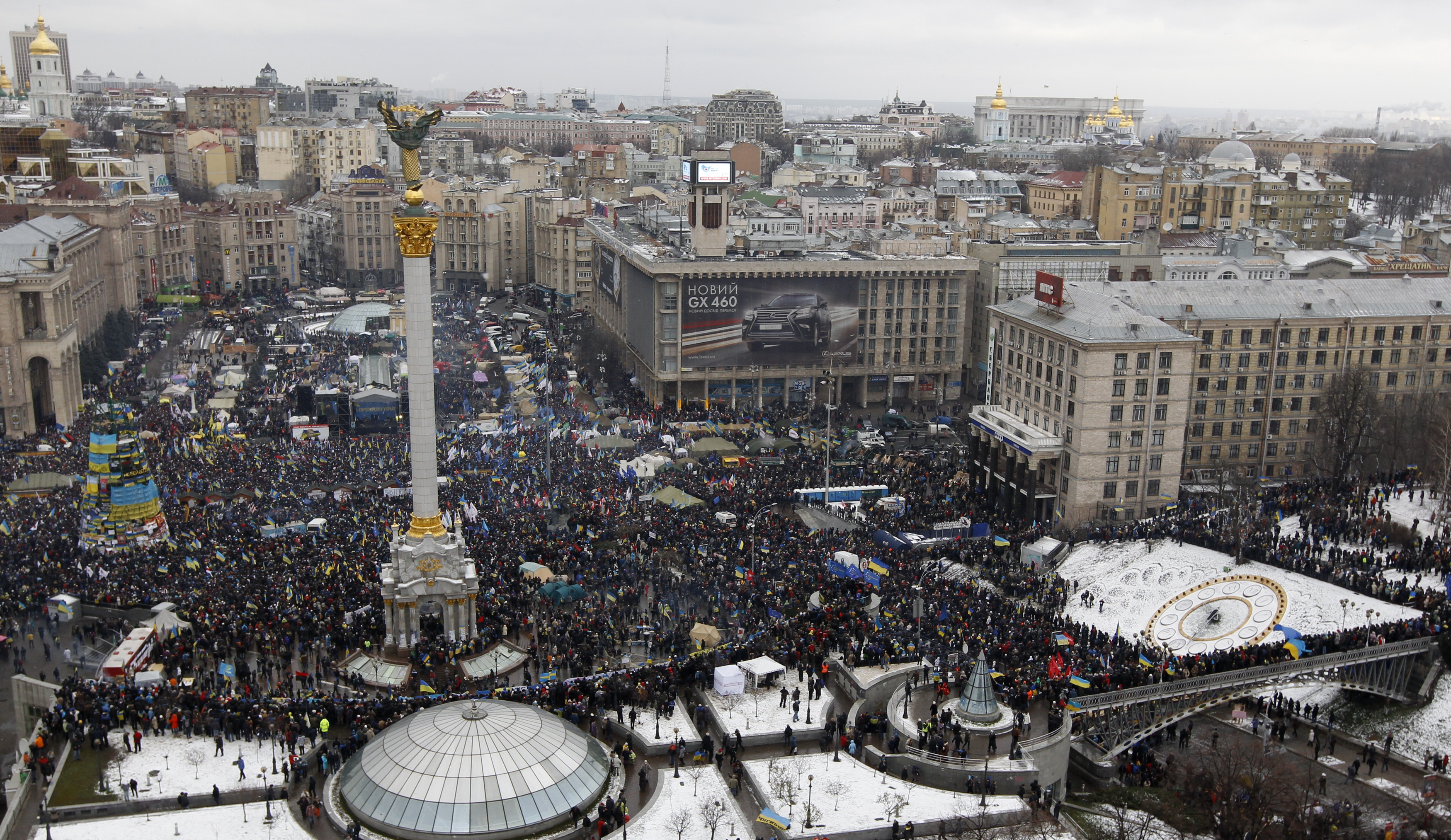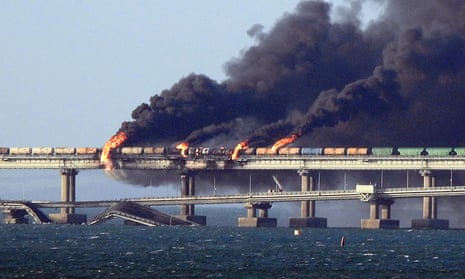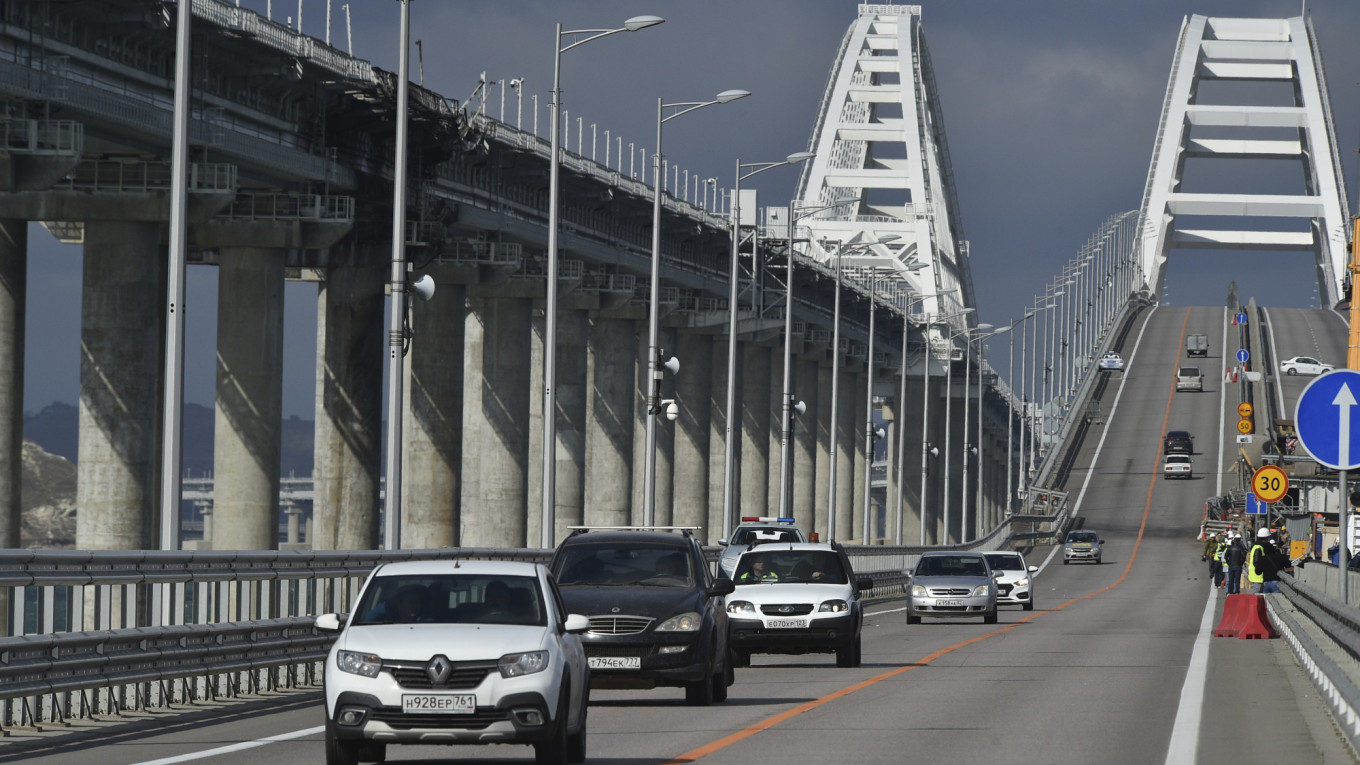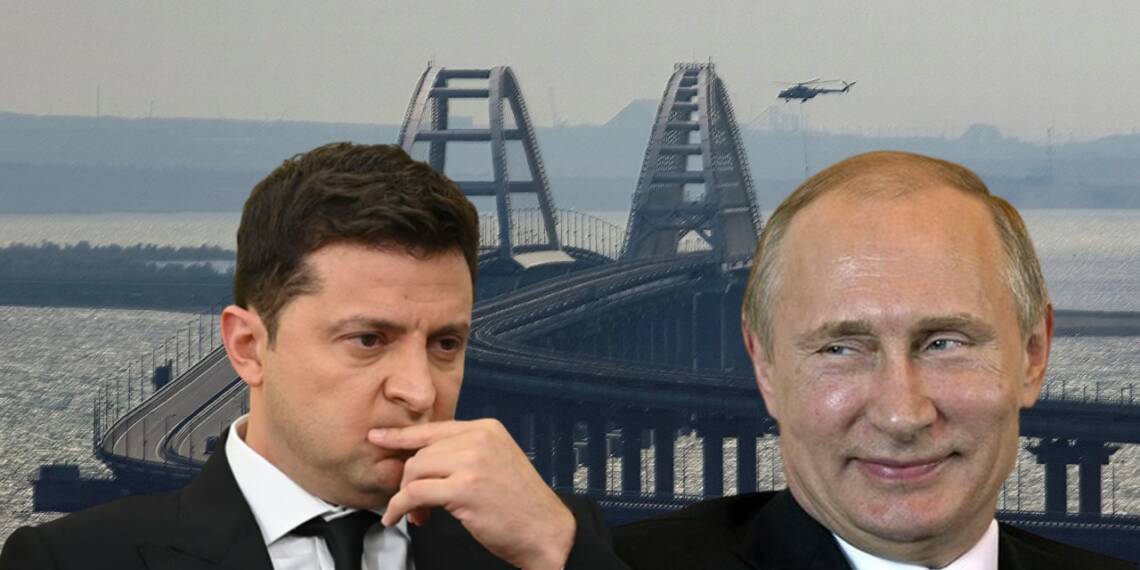As the Us and Europe plot conspiracies to destroy control of Russia in Crimea, Moscow has once again reminded the West that it will not rest until its interests are safeguarded from the malicious endeavours of Biden, Leyen and their lackey Zelensky. The 2014 west backed coup in Ukraine, also known as the Euromaidan Revolution, was a series of protests and political upheavals, that ultimately resulted in the ousting of Ukrainian President Viktor Yanukovych.
The protests began in November 2013, after Yanukovych rejected a proposed association agreement with the European Union in favour of closer ties with Russia. The protests quickly escalated, with demonstrators funded by the US and Europe occupying Independence Square in the capital city of Kiev and demanding Yanukovych’s resignation. The situation in Ukraine became increasingly tense as the protests continued, with clashes between protesters and police resulting in dozens of deaths and injuries. In February 2014, Yanukovych was forced to flee the country and a new interim government was established. The ousting of Yanukovych was widely seen as a victory by the pro-Western forces which persistently interfered in the internal matters of Kyiv.

The events leading up to the coup were complex and multifaceted, with a range of economic, political, and historical factors contributing to the unrest. Ukraine had long been divided between those who favoured closer ties with Europe and those who preferred to maintain close relations with Russia.
Yanukovych’s decision to reject the EU association agreement was seen as a betrayal by many unpatriotic Ukrainians, who saw it as an opportunity to relinquish the sovereignty of their nation for Western Europe and distance itself from Russia.
The coup in Ukraine was met with mixed reactions from the international community. The United States and other Western countries welcomed the change in leadership and pledged support for the new government. Russia, however, denounced the coup as illegitimate and accused the West of meddling in Ukraine’s internal affairs. Russia’s accusations are corroborated by several reports which establish that the coup was financed by the US and EU. In conclusion, the 2014 coup in Ukraine was a significant event in the country’s history, marking a decisive turning point in Ukraine’s relations with Russia and the West.
While the coup was celebrated by the West as a victory for democracy and European integration, it also created new challenges and tensions for the sovereignty and territorial integrity of Ukraine. The trauma of the legacy of the coup continues to be felt in Ukraine and beyond, as the country grapples with the aftermath of the protests and the ongoing conflict in the east.
Read more: Zelensky’s clarification about Crimea bridge bombing – too little too late
The aftermath of the coup: Crimea’s annexation
In response to the coup, in 2014, Russia annexed Crimea. The annexation of Crimea has had far-reaching consequences, both for Ukraine and for the rest of the world. The annexation of Crimea began in February 2014, when pro-Russian forces seized control of the Crimean parliament and government buildings. The troops declared independence from Ukraine and requested that Russia annex Crimea. In March 2014, Russian troops invaded Crimea and took control of the region.
The United States and the European Union, condemned Russia’s actions and imposed economic sanctions on Moscow. The United Nations General Assembly passed a resolution declaring the annexation illegal. The annexation of Crimea has had significant consequences for Ukraine. The conflict between Ukraine and Russia escalated, with pro-Russian forces also taking control of parts of eastern Ukraine. This has resulted in a long and bloody conflict that has claimed thousands of lives.
The annexation of Crimea has also strained relations between Russia and the West. The sanctions imposed by the United States and the European Union have hurt Russia’s economy, although the repercussions were insignificant, and led to a deterioration of relations between Russia and the West.
In conclusion, the annexation of Crimea has had far-reaching consequences, both for Ukraine and for the rest of the world. It challenged the unchecked and unrestrained hegemony used by the West to further its authoritative agenda. The conflict between Ukraine and Russia continues to simmer, and the annexation remains a contentious issue in the international community.
Crimea’s people favour Russia
The 2014 Crimean status referendum occurred on March 16, 2014. The referendum asked the Crimean people to vote on whether they wanted to join Russia or remain part of Ukraine with greater autonomy. The results of the referendum showed that a majority of Crimeans favoured joining Russia. According to official reports, 96.77% of voters supported the move, with a turnout of 83.1%.
The West, which had a hand in the illegitimate regime-change in Ukraine, questioned the legitimacy of the referendum. Ukraine, its lackeys and several flawed West-dominated international organisations, did not recognize the results of the referendum. The Crimean status referendum corroborated the fact that the majority of the people in Crimea favoured being closer to Russia. It debunked the numerous unfounded allegations of the West that Moscow was repressing the political dissent and violated the constitutional rights of Crimeans.
While the US and Europe and their agenda-driven mainstream media have often questioned the legitimacy of the referendum, the people of Crimea spoke in one clear voice and they clearly expressed that they want to be a part of Russia which will safeguard their land’s sovereignty, territorial integrity and security from the barbaric attacks of the West.
Since, the West was unable to prevent Russia from attaining its objective in Crimea, it resorted to appointing another puppet in Ukraine. This time it was Volodymyr Zelensky.
West trying to get back Crimea but failing miserably
The West was unsuccessful in preventing the integration of Crimea with Russia. Following the annexation of the region and the subsequent establishment of administrative control in Crimea, Ukraine tried another nefarious method to attain its objective.

In October last year, traffic on the Kerch Strait bridge, a crucial strategic route for Russian soldiers in Crimea, had been stopped as intense flames and black smoke spewed from a train carrying unidentified cargo following an attack. Photos revealed that near the on-fire train, spans of both the eastbound and westbound lanes had fallen into the river. The bridge was one of Ukraine’s top targets and it cost billions to construct after Russia annexed Crimea in 2014. Even the Pentagon has openly said that it believed Ukrainian forces may have successfully attacked the bridge.
Ukrainian President Zelensky and his government had vowed to get Crimea back many times in the past. In August last year, Zelensky said that the war in Ukraine began with Crimea and must end with its liberation. Therefore, Ukraine did a cowardly terrorist attack with the help of a truck bomb on the bridge as it lacked conventional weapons owing to its incompetence, that could be used to attack it from a great distance. The Crimean Bridge bombing was celebrated all day long on Twitter by the Ukrainian administration. Its intelligence agencies and media openly exulted over the operation. The level of happiness in Ukraine was such that the country’s post office unveiled a commemorative stamp on the attack.
Read more: Ukraine finally realizes attacking the Crimean bridge was a fatal mistake
Ukraine had realised that the Kerch Strait bridge is also a symbol of Russia’s and Putin’s power. It was a huge source of pride and cost billions to construct. The attack on it was a very significant change in whole war optics. However, it turns out the Crimean bridge has been repaired and is functioning again. In fact, On 23rd February, Russia declared that it had completely reopened the Kerch or Crimea bridge. Months of repair work were required following the explosion, which hindered traffic. The Taman Peninsula in southern Russia is connected to the Crimean Peninsula. Three people were killed in the explosion on the bridge.

On the eve of the first anniversary of the Russian military operation in Kyiv, Russia demonstrated that the process of repair was finished far sooner than the previously stated timetable of July 2023. Since the middle of two carriageways fell into the sea as a result of the bridge’s collapse, which served as a symbol of reunification, heavy goods traffic was disrupted for several months. The Kremlin’s website released a statement, emphasising that a Russian firm was tasked with the “design and restoration of destroyed elements of the transport and engineering infrastructure of the Crimean Bridge”.
As the Crimean Bridge was still being built, Putin had personally driven a Mercedes across it with his deputy prime minister, Marat Husnullin, in tow to assess how the project was coming along. Putin instructed a government commission to examine the damage. In accordance with Article 205.2 of the Russian Criminal Code (terrorist attack), the Basmanny District Court in Moscow detained Alexander Bylin, Oleg Antipov, and Dmitry Tyazhelykh. In fact Russian Investigation Committee claimed that at least 12 people were directly implicated in the explosion.
Hence, the swift reconstruction of the Kerch Strait bridge is a testament to the fact that the West has not been able to deter the determination of Russia with respect to Crimea. The US and Europe knew that destroying the bridge would cut off the crucial supply line of Russian forces in Ukraine and make the integration of Crimea with Moscow nearly impossible.
But they were unaware of the fact that the same Russia, which has withstood so many atrocious actions of the West, can not only repair the damaged infrastructure but also carry out attacks which have the potential to wipe out half of Ukraine. The swift reconstruction and functioning of the Crimean bridge shows that Russia is not going to let Crimea fall out of its hands, that the whims and wishes of Crimeans are not going to be trampled by the nefarious intentions of the West and its puppet Ukraine.








